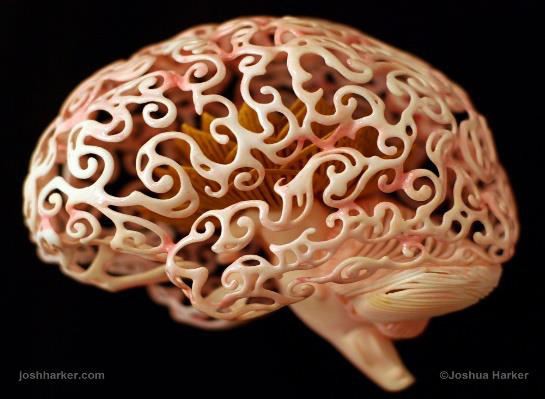 ATC
ATC

Experience and maturity will enrich the quality of your sexual encounters after 60. Where sex in young adulthood is athletic, even explosive, it is often self-centered.
Don't judge yourself by the youthful standard. What you have today is different, but not inferior to yesterday.
CLEAR AWAY OBSTACLES CAUSED BY HEALTH CHALLENGES
If your sex life is not satisfactory, illness, not age, may be responsible. Diabetes, depression or an underactive thyroid can rob you of sexual desire.
Inflammation of the prostate may make sex uncomfortable. These conditions are treatable.
Heart disease can have an indirect impact on sex. People who suffer from angina (chest pain) or have had heart attacks are often anxious about sex or avoid it altogether. But the risk of harm is actually very low... less than 0.3% of heart attack deaths occur during sex. Check with your doctor.
After menopause, vaginal tissues grow thinner and natural secretions dry up. This makes sex painful for some older women. Oestrogen replacement can correct the problem, but recent studies have called into question the safety of the long-term use of oestrogen.
If you'd rather forgo hormones, an over-the-counter vaginal lubricant like Replens will also help restore the pleasure of sex.
Some medications may reduce sexual drive and impair performance (especially for men). Blood pressure drugs, antidepressants, tranquilizers and diuretics (water pills) are the most common culprits.
Almost always, your doctor will be able to prescribe an alternative medication that will work just as effectively and spare your sex life.
IMPROVE YOUR LIFESTYLE
Exercise. Brisk walking is the best exercise for most older people. Start by walking rapidly until tired, then rest and return at a leisurely pace to the starting point. Gradually increase the distance and pace.
Get enough rest. A well-rested body is more eager and able to perform sexually. Try for seven or more hours of sleep a day. Take naps or rest breaks in the afternoon if you need them. Get medical help for persistent sleeping problems.
Avoid alcohol. Several drinks may relax you and put you in the mood for sex but can diminish your ability to perform. Even small amounts of alcohol affect you more than when you were younger.
Don't smoke. The sexual organs—both male and female—fill with blood when arousal occurs, and nicotine interferes with this process by constricting vital blood vessels. Men who smoke may also have lower levels of testosterone.
Stay sexually active. If you don't have sex regularly, desire and ability will dwindle. If it has been years since you've been sexually active, pay special attention to lifestyle factors, be patient (and ask the same of your partner)... and expect that it may take several months to get back in practice.
SET THE SCENE
Create
a romantic
setting.
One couple has "dates" at home. They dress nicely, have a candlelit dinner and then retire to the bed-room, which they've made inviting with fresh flowers and soft lights.
Take a vacation to a new, exciting place is also a great way to recharge your sexual batteries.
Be willing to change and explore. Try new positions and techniques. If you've never read about sexuality, this is a good time to start.
Be stimulating and stimulated. As most men grow older, they need direct physical stimulation of the penis to attain an erection. For women, leisurely, loving fore play, which includes stimulation of the clitoris, increases pleasure and promotes orgasm.
Communicate. Tell your partner what feels good—and what doesn't feel so good.
Timing is key. Sex doesn't have to be just a bed time activity—particularly if you're retired and have more time. Feel free to have sex when you're both energetic and in the mood. Many people are most rested and relaxed in the morning (and men are generally most potent then). Or unplug the phone, lower the shades and treaty ourselves to a matinee.
WORK ON YOUR RELATIONSHIP
Sex is just part of a mature relationship. Tender, generous feelings increase the pleasure, while anger and resentment get in the way.
Strive to be responsive to each other's feelings and needs not just in bed. Bring resentments and disappointments into the open and do your best to resolve them.
Don't take each other for granted but make a sustained effort to be interesting and interested. If boredom has crept into your relationship, look within for the deeper feelings you have for one another and express those feelings sexually.
![]()
WHY INTIMACY IS GOOD FOR THE BRAIN

Research has demonstrated the stress-reducing effects of sexual activity, as well as its ability to stimulate brain cell growth in regions controlling memory function.
Sexual excitement leads to release of DHEA. This hormone bolster cardiac health, which explains why greater sexual activity could be associated with increased longevity.
Endorphins and other hormones are released during sexual activity. This results in additional relaxation and more restful sleep, which also boosts brain health.
Physical expressions of love can improve brain and body health. For instance, hugging another person will reduce blood pressure, and holding hands can improve reactions to stress. Cardiac chest pain due to inadequate blood supply to the heart is less frequent in men who feel loved and supported by their spouses.
The͞ love molecule, oxytocin, is released because of intimate relations. This neuro-transmitter works to strengthen bonds between couples, including feelings of trust and attachment. In combination with dopamine and norepinephrine, oxytocin helps reduce fear, pain, and stress levels.
ENJOY YOUR LIFE, YOU DESERVE IT!
